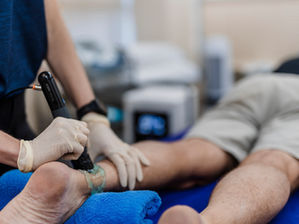On Tour With the Kid | From Protest to Celebration and the Road Ahead
- Chloe O'Sullivan
- Mar 1, 2024
- 3 min read
Updated: Mar 6, 2024

1998 was the first year I remember going to Mardi Gras.
My best friend had come out a couple of years prior, and for lots of unconnected reasons, it had been a rough time. Marching in the parade felt like something to look forward to. I remember seeing a small group of Fred Nile-affiliated protesters as we walked into the marshalling area and wondering if they had nowhere better to be. I never understood that kind of venom about something that didn't seem like any of their business.
I grew up in a country town, and my mum was a psych nurse who was younger and certainly more left of centre than most of my friends’ parents. Aside from older relatives, I didn't really know people who were married. Lots of mums’ friends came of age in the 70s and thought marriage was an outdated concept, so were living in sin. Most of the long term
couples we knew were gay men, who, of course, couldn't get married at the time. Mum had me at 18, so I was one of the
only kids for a long time. I heard lots of adult conversations. Nothing inappropriate, just things other kids might not have heard or even taken any notice of. I heard stories about what it was like to come out in the 60s and 70s. When just being who they were was illegal. I heard stories about being abused and beaten by total strangers or by the police. Stories of being disowned by their families.
They seemed like stories from the Second World War. Distant from anything I knew. I had only ever seen joy and fun - the realisation that sometimes you have to make your own family to be surrounded by the acceptance you deserve. As the 80s dragged on, I saw this unmatched sense of community and love as their friends and lovers slipped away due to what people were referring to at the time as gay cancer, now known as HIV/AIDS.
I then heard conversations about medical professionals who wouldn't step into the hospital rooms of patients, and partners who had been together for decades being excluded from medical and end-of-life decisions. Watching those decisions handed over to the family that had refused to be part of the amazing life they shared was heart-breaking. It
was, by anyone's standards, unconscionable. As we walked down Oxford Street that February night in 1998, surrounded by people cheering on my friends and police wishing them well, I remember thinking how far society had come. How this event that had begun as a protest had become a celebration. I was so thankful to be able to be there supporting my
beautiful friends and watching them shine.
On 6 October that year, the whole world would hear the name Matthew Shepard. He was a 21-year-old college student living in Laramie, Wyoming, a town the size of Cessnock. That night, he had been robbed and brutally assaulted by two local men his age. They then tied him, severely injured, to a fence post outside of town in freezing temperatures. The
following morning, he was found still breathing by a bike rider. The only part of his face not covered in blood were the tracks of the tears that had rolled down his face. Matthew died in hospital four days later, surrounded by his family.
The Laramie Project became a movie that would later become a play. It was a collection of interviews with 200 people from the town of Laramie in the aftermath of the crime, which would become the epicentre of the hate crime conversation (it’s currently on Binge if you haven’t seen it).
As we head into Mardi Gras this month, to my LGBTQI+ friends, you celebrate everything that makes you amazing. To those of us who consider ourselves allies, cheer them on, but remember there is still work to do, and we need to take some of that load.
Happy Mardi Gras!!!




















































